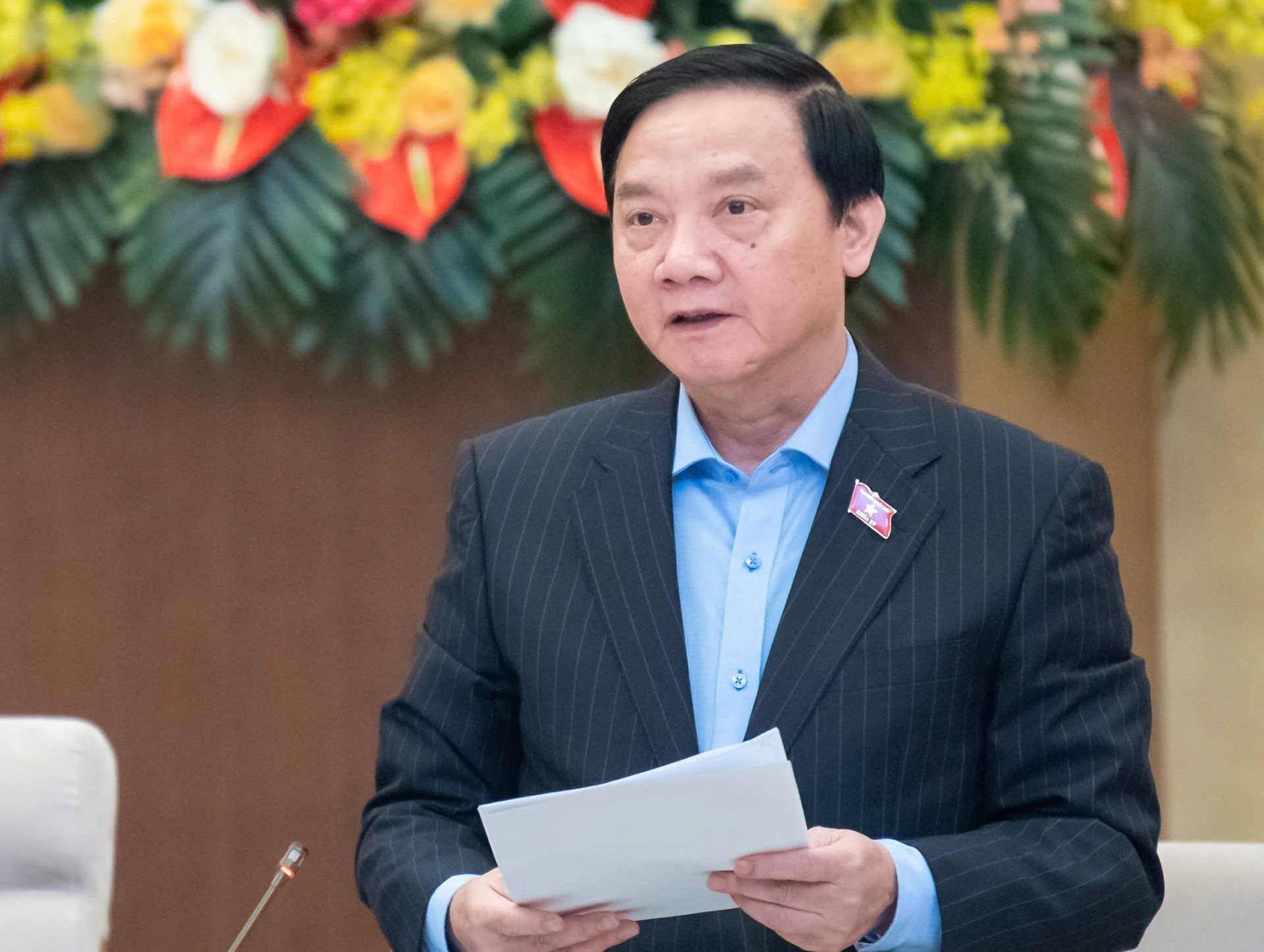
On the morning of February 5, the National Assembly Standing Committee discussed the draft amendment to the Law on Local Government Organization.
Expanding the urban governance model to promote development
One of the key topics under debate was the expansion of the local government model.
Vice Chairman of the National Assembly, Nguyen Khac Dinh, noted that under the proposed law, People's Councils would no longer be organized in urban communes, communes within townships, and communes within cities under cities.
"This is a new and completely different approach from current regulations, which means it requires the approval of the Politburo," he emphasized.
Dinh further stated that this approach differs from the Capital Law. While the Capital Law currently does not establish People's Councils at the ward level, townships, districts, towns, and cities under a city still have them.
As a result, the Vice Chairman of the National Assembly raised concerns about whether Hanoi should follow the new law or the Capital Law, a question that needs resolution.
Minister of Home Affairs Pham Thi Thanh Tra emphasized that the government aims to structure local administration in accordance with the draft proposal. Regarding Hanoi’s governance, she suggested that it should comply with the overarching Local Government Organization Law rather than maintain separate rules under the Capital Law.
National Assembly Chairman Tran Thanh Man stressed that before eliminating district and ward councils in major cities like Ho Chi Minh City, Hanoi, and Da Nang, there must first be a thorough review of the pilot program. He suggested that if the removal of People's Councils in urban communes were to proceed, it should initially be done on a trial basis.
Chairman of the Legal Committee Hoang Thanh Tung added that eliminating People's Councils at certain local administrative levels had already been tested, and the results showed mostly positive impacts, with only a few issues requiring resolution.
According to Hoang Thanh Tung, removing People's Councils in urban communes, as proposed by the government, could enhance governance, streamline management, and gradually transition local administration toward a more urban-focused model.
Reporting to the Politburo for guidance
Another major topic of discussion was the structure of the People's Committees. Vice Chairman of the National Assembly Nguyen Khac Dinh explained that the draft law proposes two types of People's Committees.
The first operates as a collective body elected by the People's Council and serves as its executive arm. The second, for areas without People's Councils, is appointed by a higher administrative authority and operates under a single-leadership model.
However, the Legal Committee suggested that if Vietnam aims to make a significant reform emphasizing responsibility and authority, the entire country should adopt a single model in which the People's Committee functions as an administrative body operating under a leadership system.
"This would truly be a revolutionary change, eliminating ambiguity between the collective and individual authority in governance. In an administrative system, only the government operates collectively, while the rest of the system should function under direct leadership," Dinh explained.
According to the Vice Chairman, this proposal was not originally included in the government's submission but was put forward by the Legal Committee. If both the government and the National Assembly Standing Committee agree, the issue will be discussed within the Party leadership before seeking Politburo approval.
"If implemented, this would be a significant reform and would not conflict with the Constitution," he emphasized.
Minister of Home Affairs: A governance revolution
Minister of Home Affairs Pham Thi Thanh Tra expressed strong support for the proposal that People's Committees should operate as administrative bodies under a leadership system.
"When my colleagues and I discussed this with the Legal Committee and they reported back to me, I immediately agreed because this aligns with global trends. Many countries today have mayors and provincial governors. This model is highly effective, aligning with international best practices while also enhancing the role and responsibility of local administrative leaders. I believe this would be a major breakthrough and a revolutionary shift in local governance," she stated.
The Minister further mentioned that these discussions would be reviewed the following day, and a final proposal would be coordinated between the Party leadership of the government and the National Assembly before being submitted to the Politburo for a decision.
However, the National Assembly Chairman urged careful consideration of the model. He pointed out that while the People's Committee is a collective body, certain executive powers already rest with provincial and city chairpersons.
He explained that under various laws and National Assembly resolutions, final authority is often vested in the Chairperson of the People's Committee at the provincial and municipal levels.
Therefore, instead of completely removing collective governance, a more balanced approach might involve further enhancing the authority of the Chairperson while maintaining some level of collective oversight.
The Chairman of the Legal Committee reaffirmed that transitioning the People's Committee to a leadership-based system falls under the scope of legislative decision-making and does not conflict with constitutional provisions.
He further elaborated that the Constitution does not mandate that People's Committees must operate collectively, whereas People's Councils are inherently collective decision-making bodies.
Currently, all People's Committees in areas without a local government structure (i.e., those without People's Councils) already function under a leadership system. The proposal aims to extend this governance model to areas that currently have People's Councils.
Permanent Deputy Prime Minister Nguyen Hoa Binh noted that the government would continue to review the proposal to ensure it does not violate the Constitution. If deemed constitutionally sound, this reform could represent a major administrative shift.
He suggested that discussions between the Party leadership of the government and the National Assembly should continue before presenting the proposal to higher authorities for final approval.
Thu Hang